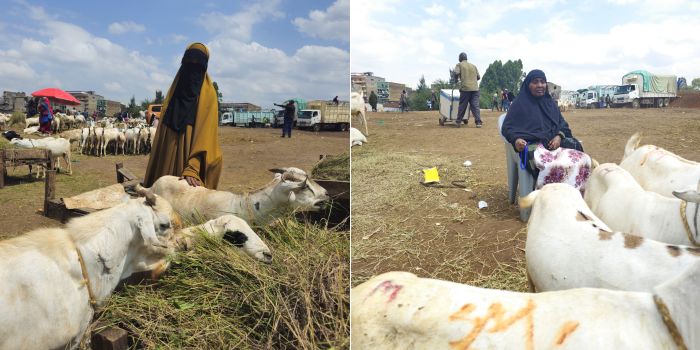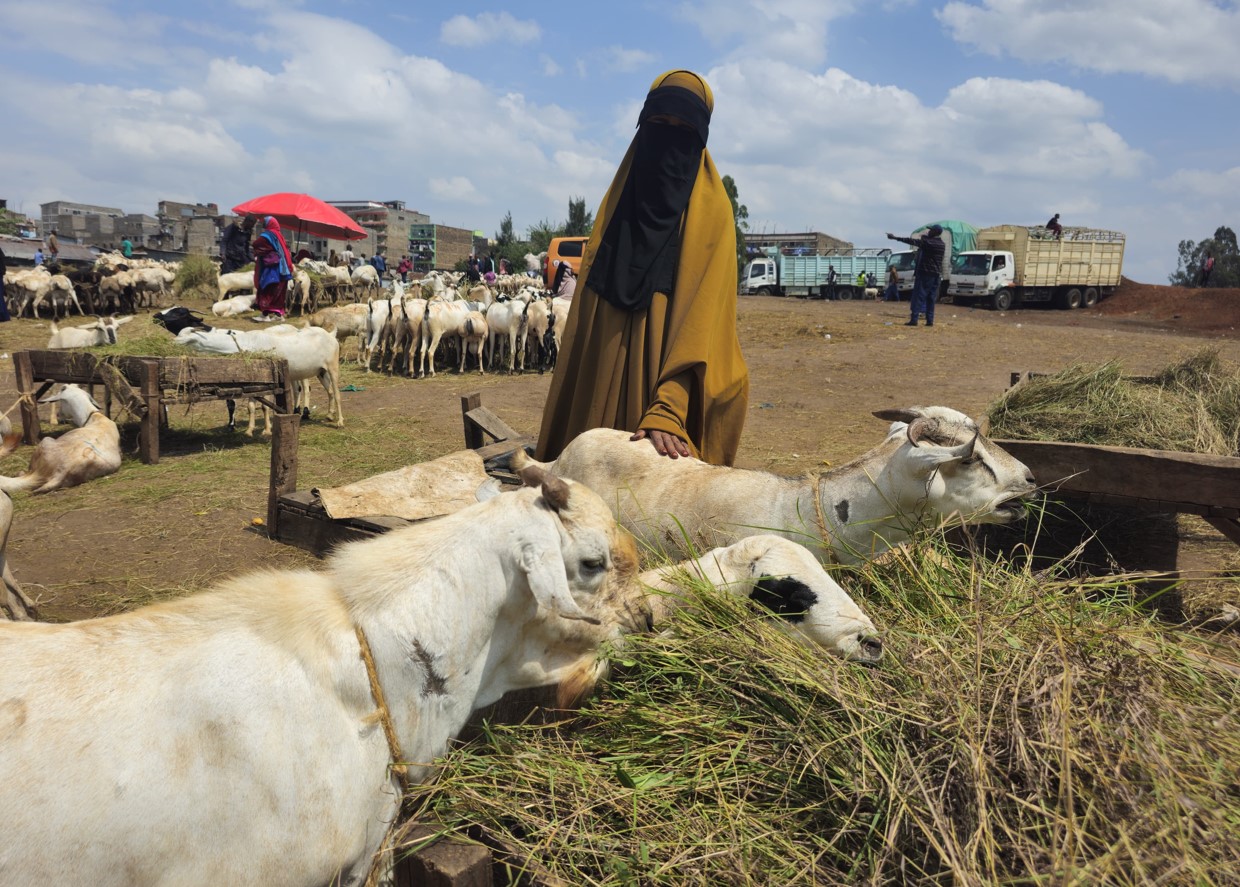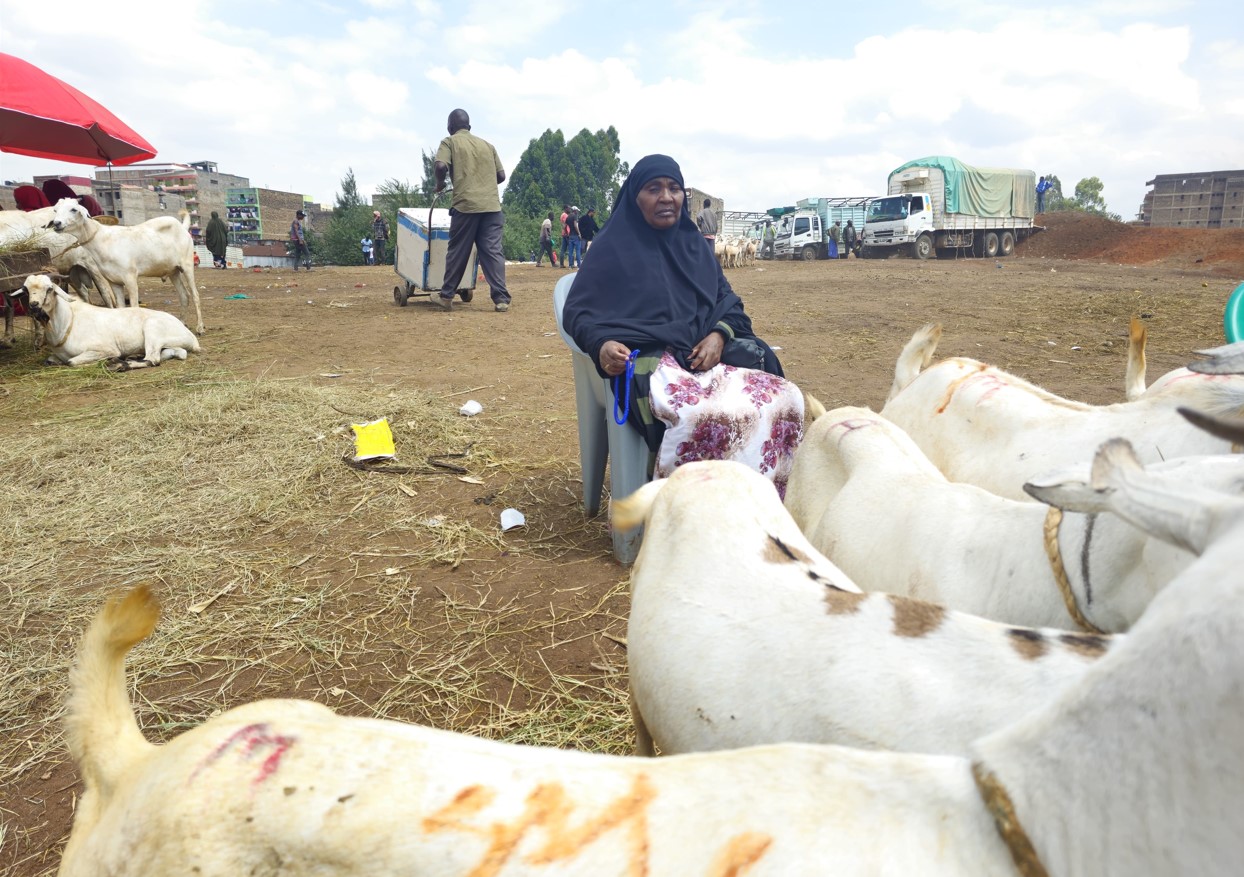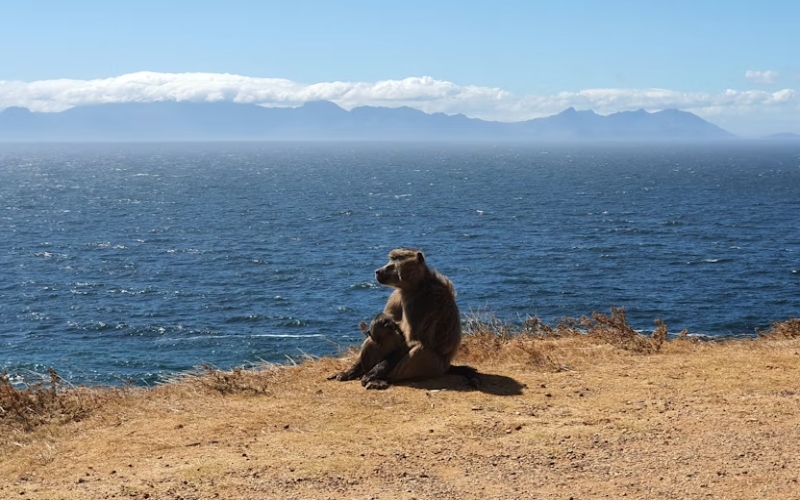Against all odds: Single mothers thrive at male-dominated Kiamaiko goat market

Each of these women has faced significant personal and societal challenges but has managed to turn her circumstances around through sheer willpower and hard work, securing her family's well-being.
In the heart of Nairobi's biggest goat market, Kiamaiko, where the air is thick with the bleating of goats and the hum of negotiations, a group of women is making its mark.
Traditionally dominated by men, the goat market is an unlikely place to find single mothers running successful businesses, yet these women, with their unwavering determination and resilience, are not only defying gender norms but are also securing better futures for their families.
In the chaotic and competitive environment of the Kiamaiko goat market in Eastlands, these single mothers have carved out a niche for themselves, defying societal expectations and setting new standards for what women can achieve.
At 50 years old, Juwaira Abdi is a veteran of the Kiamaiko goat market, having spent the last 15 years navigating its challenging terrain.
"I have schooled my children up to the university level with this job," the widowed mother of eight told The Eastleigh Voice in an interview on Tuesday, adding that income is what covers her household expenses. "I don't have a big job, and I don't work for the government, but I get more than enough to sustain us all."
The average price of a goat at the market is Sh10,000 but during events such as Sunday's Eid al-Adha, the cost rises to between Sh15,000 and Sh18,000 as the demand soars.
Entering a male-dominated field was initially uncomfortable for Juwaira, but over time, she mastered the skills and expertise needed to thrive in this competitive environment.
"It was uncomfortable at first working here but as time went by, we became men as well. I came here when I was young and naïve and grew up in this field and found my purpose here," Juwaira said.
Her success is a testament to her determination and adaptability, qualities that have enabled her to provide a stable future for her children, some of whom are still studying while others have completed their education.
 Daqan Mashi sells her animals at the Kiamaiko goat market in Eastlands, Nairobi, in this picture taken on June 11, 2024. (Photo: Abdirahman Khalif/EV)
Daqan Mashi sells her animals at the Kiamaiko goat market in Eastlands, Nairobi, in this picture taken on June 11, 2024. (Photo: Abdirahman Khalif/EV)
Daqan Mashi's story is one of courage in the face of personal adversity.
After a divorce left her solely fending for her four children, Daqan turned to the goat market to survive.
"My husband did not look after our kids after we divorced. I had no choice but to do this," she explained.
With just three years in the business, Daqan has already made strides and can sustain her family through the income she earns from selling goats and negotiating deals.
"It is a good business; selling goats and negotiating with people all over has been an eye-opener for me," she said.
Daqan's resilience and ability to adapt quickly have been instrumental in enabling her to provide her children with stability and support despite many challenges.
 Hawa Boru is pictured with her animals at the Kiamaiko goat market in Eastlands, Nairobi, on June 11, 2024. (Photo: Abdirahman Khalif/EV)
Hawa Boru is pictured with her animals at the Kiamaiko goat market in Eastlands, Nairobi, on June 11, 2024. (Photo: Abdirahman Khalif/EV)
For Hawa Boru, the journey began over a decade ago when she started as an assistant to animal owners, taking goats and sheep for feeding and returning them to the market.
"It was extremely hard for a woman," Hawa admitted, citing physical demands and harsh working conditions that often left her contemplating quitting.
However, the lack of capital to start a different business forced her to persevere, and over time, she saved enough to transition from an assistant to an owner.
Hawa now buys goats from the Kiamaiko market and sells them in Mlolongo.
Her efforts have borne fruit, with two of her children currently attending university.
"One is outside the country working. I am grateful I persevered and navigated this market," she said.
Each of these women has faced significant personal and societal challenges but has managed to turn her circumstances around through sheer willpower and hard work, securing her family's well-being.
Top Stories Today
















































